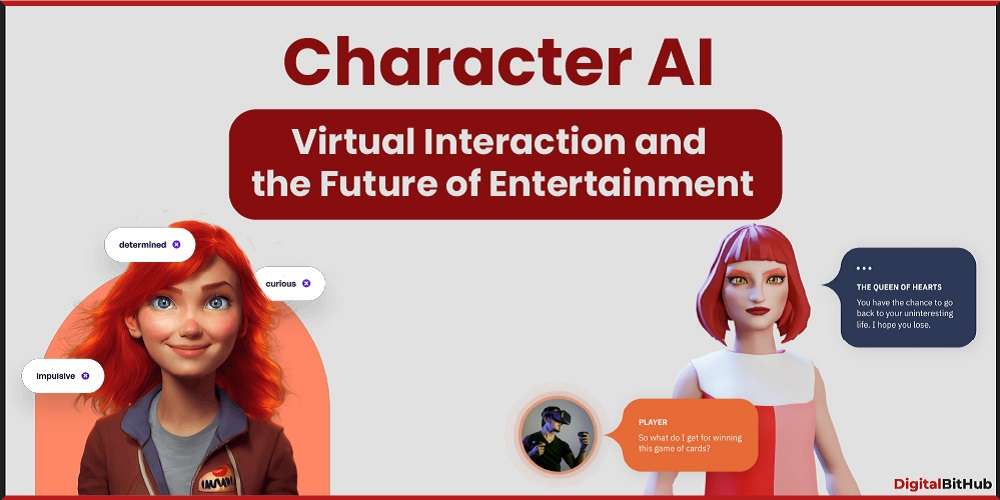Introduction
In the ever-evolving landscape of artificial intelligence (AI), the emergence of character AI represents a significant leap forward. Character simulated intelligence refers to intelligent entities designed to exhibit human-like traits, personalities, and behaviors in digital environments. These virtual personalities are revolutionizing human-computer interactions across various domains, from entertainment and education to healthcare and customer service. In this article, we delve into the intricacies of character AI, exploring its development, applications, and implications for the future.
Understanding Character AI
Character AI transcends traditional AI systems by focusing on more than just completing tasks; it aims to simulate human-like interactions and emotions. These virtual characters possess personalities, preferences, and even histories, making them more relatable and engaging for users. By leveraging techniques from cognitive science, natural language processing, and machine learning, developers create virtual entities capable of understanding context, expressing emotions, and adapting to user interactions dynamically.
The Development Process
Developing character AI involves a multidisciplinary approach, combining psychology, linguistics, and computer science insights. Designers meticulously craft personality traits, speech patterns, and visual appearances to ensure authenticity and resonance with users. Natural language understanding algorithms enable virtual characters to interpret user inputs, while sentiment analysis algorithms help gauge emotional states and tailor responses accordingly. Iterative testing and refinement are essential to fine-tune the character’s behaviors and enhance user engagement.
Character AI in Entertainment
One of the most prominent applications of character AI is in the entertainment industry. In video games, virtual characters serve as companions, adversaries, or quest-givers, enriching the gaming experience with dynamic narratives and personalized interactions. Advanced character AI algorithms enable non-player characters (NPCs) to exhibit complex behaviors, learn from player actions, and evolve, creating immersive and lifelike gaming worlds.
Educational Applications
Character AI holds great potential in education, where virtual tutors and mentors can personalize learning experiences for students. Intelligent tutoring systems leverage Character-simulated intelligence to adapt instructional content based on individual learning styles, preferences, and progress. Virtual teachers and classmates engage students in interactive simulations, role-playing scenarios, and collaborative activities, fostering deeper understanding and retention of concepts.
Healthcare and Therapy
In healthcare, Character-simulated intelligence is transforming patient care and therapy delivery. Virtual therapists and healthcare companions provide support, guidance, and companionship to individuals dealing with mental health issues, chronic conditions, or rehabilitation needs. These virtual entities offer a safe and non-judgmental space for patients to express themselves, practice coping strategies, and receive personalized interventions, augmenting traditional therapy approaches and extending support beyond clinical settings.
Customer Service and Virtual Assistants
Character AI is also reshaping customer service and virtual assistant applications. Virtual customer service representatives and chatbots enhance customer interactions by providing instant support, answering queries, and resolving issues efficiently. By incorporating personality traits and conversational abilities, these virtual agents create more engaging and memorable customer experiences, increasing satisfaction and brand loyalty.

Ethical Considerations and Challenges
Despite its promising potential, Character-simulated intelligence raises ethical concerns regarding data privacy, consent, and algorithmic bias. Developers must prioritize transparency, accountability, and user autonomy to mitigate risks and ensure ethical practices. Additionally, addressing issues of inclusivity, diversity, and representation is crucial to prevent the reinforcement of stereotypes and discrimination in virtual character design and interactions.
The Future of Character AI
Looking ahead, the future of character AI holds limitless possibilities. Advancements in emotion recognition, empathetic computing, and deep learning algorithms will further enhance the capabilities of virtual characters, enabling more natural and meaningful interactions with users. As Character simulated intelligence continues to evolve, it will play increasingly significant roles in human-computer interaction, education, healthcare, and beyond, shaping the way we interact with technology and each other.
Conclusion
Character-simulated intelligence represents a paradigm shift in the field of artificial intelligence, ushering in a new era of personalized and immersive digital experiences. By harnessing the power of virtual personalities, we can create more engaging games, enriching educational environments, and empathetic healthcare solutions. However, as we embrace the potential of character AI, we must remain vigilant about ethical considerations and ensure that these intelligent entities serve the best interests of users and society.





